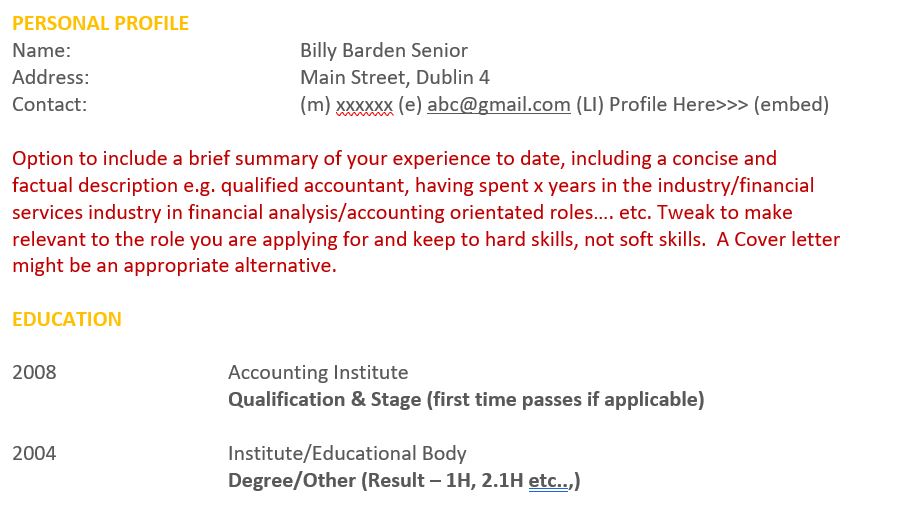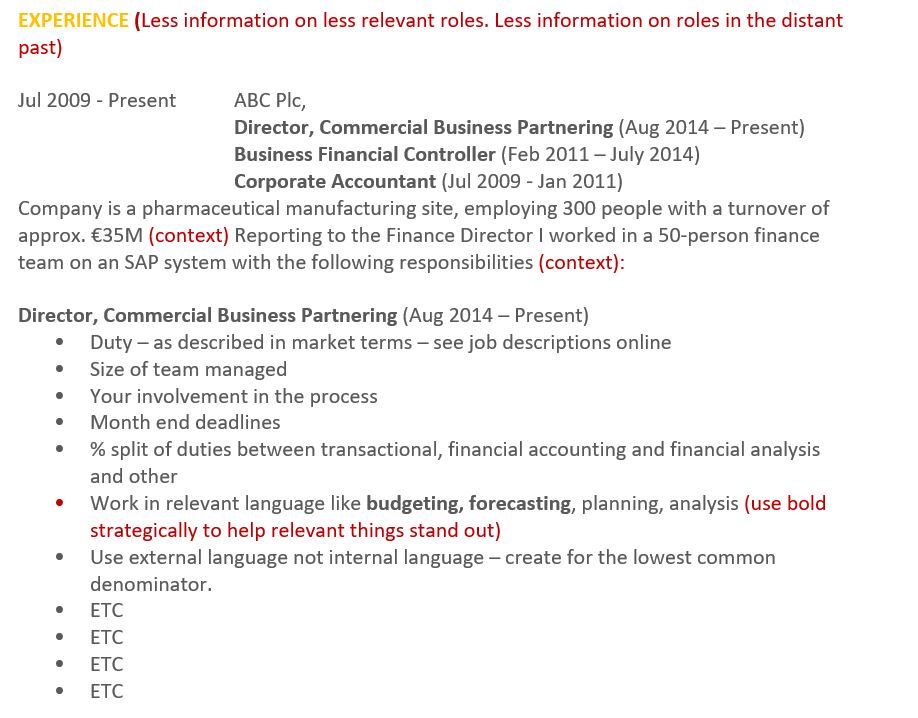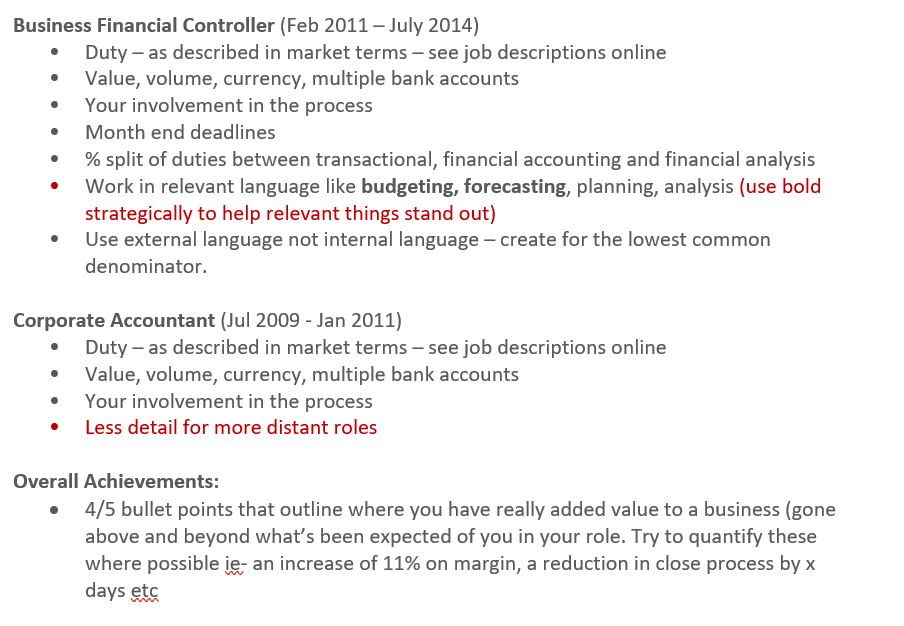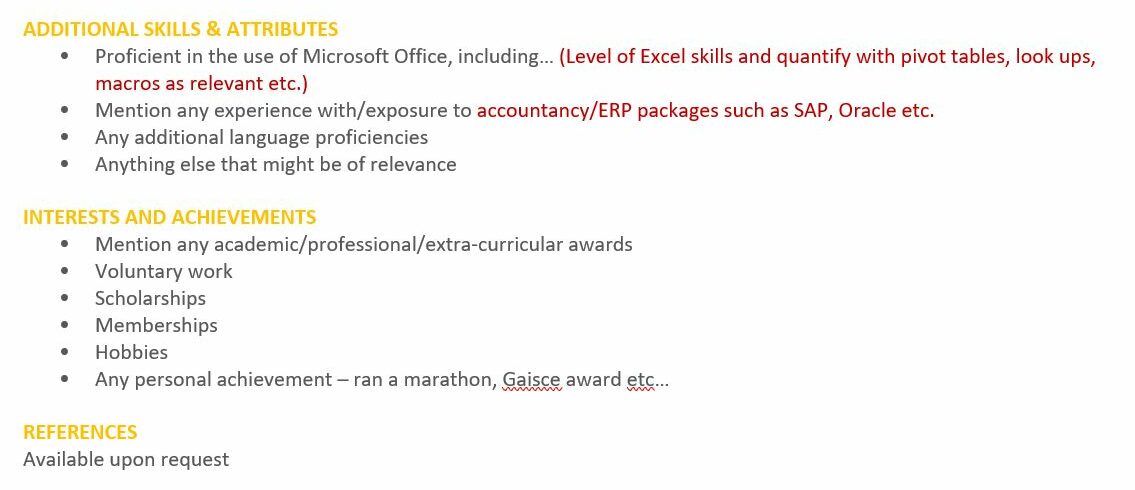Your CV is just too important to leave to chance. It’s the most personal document you will ever create. It represents your professional life story and holds the key to your future hopes, dreams and aspirations. It represents you when you are not in the room. It is what makes you stand out from the crowd. Get it right and it will work tirelessly for you. Get it wrong and it will close doors before you even get the chance to open them.
We work with senior finance professionals (FC/FD/CFO) every day and have advised 1000’s on their CV. Here’s the best advice you can get to create the perfect senior finance CV.
Step 1: Personal details, summary and education. If you do it right here’s how it should look (pay special attention to the advice in red):

Couple of things you might have noticed:
- Address/Contact Information: Keep all to one line if you can. Page 1 is prime real estate so make sure you don’t give up space easily!
- Professional Summary: Tailor this to suit the job you are applying for. Make it specific. Make it a place where you can highlight your suitability for the role. Beware talking about soft skills here; they’re too subjective.
- Education: Reverse chronological order. Only include relevant education (if you did a barista course that’s lovely but it does not deserve to go on the front page…unless you’re applying to a coffee company!). Keep it simple. Bold out the qualification and results.
Step 2: Experience: If you do it right here’s how it should look:


Some things worth pointing out here:
- The above approach allows you to 1) Show tenure and progress in your current company at a glance and 2) Break out your experience into chunks in a logical, digestible way. We’ve tried every which way to approach this and this format won out every time.
- Not everyone (in fact hardly anyone!) outside your current company will know anything about your current company. This is where the intro line above is key. It’s your chance to give context and to explain what ABC Ltd is and the structure you sit in, team size, reporting lines (just as important as what you do!)
- Try to use common market language and not just lots of internal acronyms that nobody will understand externally. A good tip is to print out job specs for roles you’re interested in and use their language to describe your experience.
People usually get interviews based on their current or most recent experience. You might be tempted to put in loads of detail about the job you had in 2005 but the reality is that is less relevant than the job you did last year. More detail for more recent roles; less (and maybe even just only dates, company and job title) for less recent roles. More detail for roles you spent more time in; less detail for roles you spent less time in. Follow these rules and you’ll be on the right track and the rest of your experience might look a little like this:

Step 3: The other stuff: The decision to interview you or not will likely already be made by the time the hiring manager gets to this point in your CV. That said it is a great place to talk to you the person rather than just you the professional, can provide great information to break the ice at interviews and you might well be surprised at how much weight some hiring managers can put on non-work activities and achievements. If you do it right it might look like this:

CVs are really simple in theory but can be very tricky in practice. We’ve a lot of practice in Barden. If you want an MS Word version of this CV template just drop an email to hello@barden.ie and we’ll look after that for you. Easy.


 Jump Back
Jump Back

